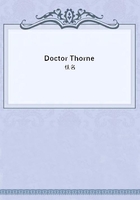
第71章
Mr Closerstil was well known to be the sharpest man at his business in all England, unless the palm should be given to his great rival Mr Nearthewinde; and in this instance he was to be assisted in the battle by a very clever young barrister, Mr Romer, who was an admirer of Sir Roger's career in life. Some people in Barchester, when they saw Sir Roger, Closerstil and Mr Romer saunter down the High Street, arm in arm, declared that it was all up with poor Moffat; but others, in whose head the bump of veneration was strongly pronounced, whispered to each other that great shibboleth--the name of the Duke of Omnium--and mildly asserted it to be impossible that the duke's nominee should be thrown out.
Our poor friend the squire did not take much interest in the matter except in so far that he liked his son-in-law to be in Parliament. Both the candidates were in his eye equally wrong in their opinions. He had long since recanted those errors of his early youth, which had cost him his seat for the county, and had abjured the De Courcy politics. He was staunch enough as a Tory now that his being so would no longer be of the slightest use to him; but the Duke of Omnium, and Lord de Courcy, and Mr Moffat were all Whigs; Whigs, however, differing altogether in politics from Sir Roger, who belonged to the Manchester school, and whose pretensions, through some of those inscrutable twists in modern politics which are quite unintelligible to the minds of ordinary men outside the circle, were on this occasion secretly favoured by the high Conservative party.
How Mr Moffat, who had been brought into the political world by Lord de Courcy, obtained the weight of the duke's interest I never could exactly learn. For the duke and the earl did not generally act as twin-brothers on such occasions.
There is a great difference in Whigs. Lord de Courcy was a Court Whig, following the fortunes, and enjoying, when he could get it, the sunshine of the throne. He was a sojourner at Windsor, and a visitor at Balmoral. He delighted in gold sticks, and was never so happy as when holding some cap of maintenance or spur of precedence with due dignity and acknowledged grace in the presence of all the Court. His means had been somewhat embarrassed by early extravagance; and, therefore, as it was to his taste to shine, it suited him to shine at the cost of the Court rather than at his own.